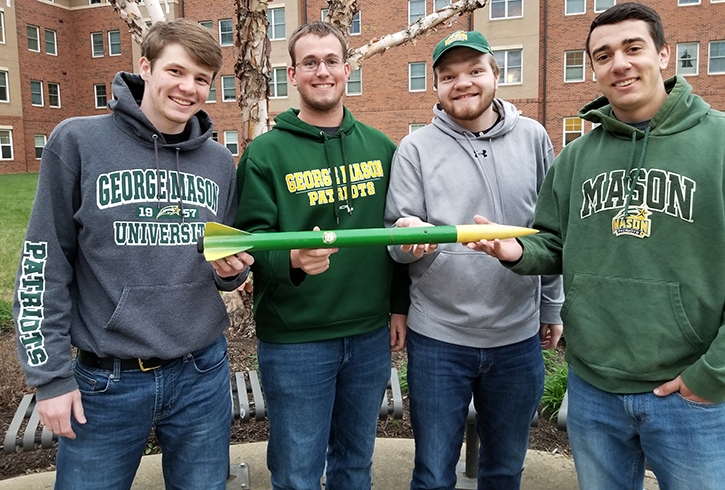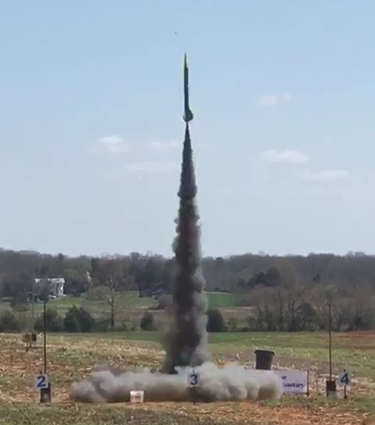The challenge is keeping the altitude consistent between launches because of the wind and other factors.
Alex Maxseiner

Mason's Rocketry Club, including members Alex Maxseiner (left), Eric Dau, Joe Coffin, and Peter Goffe, won the target altitude event at the Battle of the Rockets competition in Culpeper, Virginia last weekend.

Mason's Rocketry Club placed third in the sounding rocket event last weekend at the Battle of the Rockets competition.
Mason’s Rocketry Club captured first place in the target altitude event at the Battle of the Rockets competition in Culpeper, Virginia last weekend.
The club placed third in the sounding rocket event. It was the group’s first time to participate in the competition.
“We were surprised that we won an event at our first competition,” says Alex Maxseiner, president and founder of the club and a junior in computer engineering.
The objective of the event was to fly a rocket as close as possible to the targeted altitude of 1,312 feet. The club got three shots at reaching that goal; scoring was based on their best two attempts. Mason’s team was off by only 115 feet in their best two shots.
“The challenge is keeping the altitude consistent between launches because of the wind and other factors,” Maxseiner says. There’s a lot of stress at the two-day event because you want your rocket to perform, and any error in the launch could result in making repairs with a limited amount of time.”
The club members built two rockets this year. They had several practice launches before the competition. The project was sponsored by the Department of Electrical and Computer Engineering.
“I didn’t know much about amateur rocketry before joining the club, but now I am pursuing my level 1 certification, says Peter Goffe, the club treasurer and a junior majoring in mechanical engineering. “We accept people from all academic backgrounds. The club is flexible with schedules, but we must meet deadlines.”
The club's faculty advisor Harold A. Geller, who is Mason's Observatory director, says he thinks it's great that club members "can grow their STEM skills and continue our society’s exploration of space.”
Maxseiner says he founded the club in 2016 because he and his peers wanted to get hands-on experience using the information they were learning in their classes. “I thought this was a cool application of it. We all like space. I am considering working in the space industry when I graduate.”
